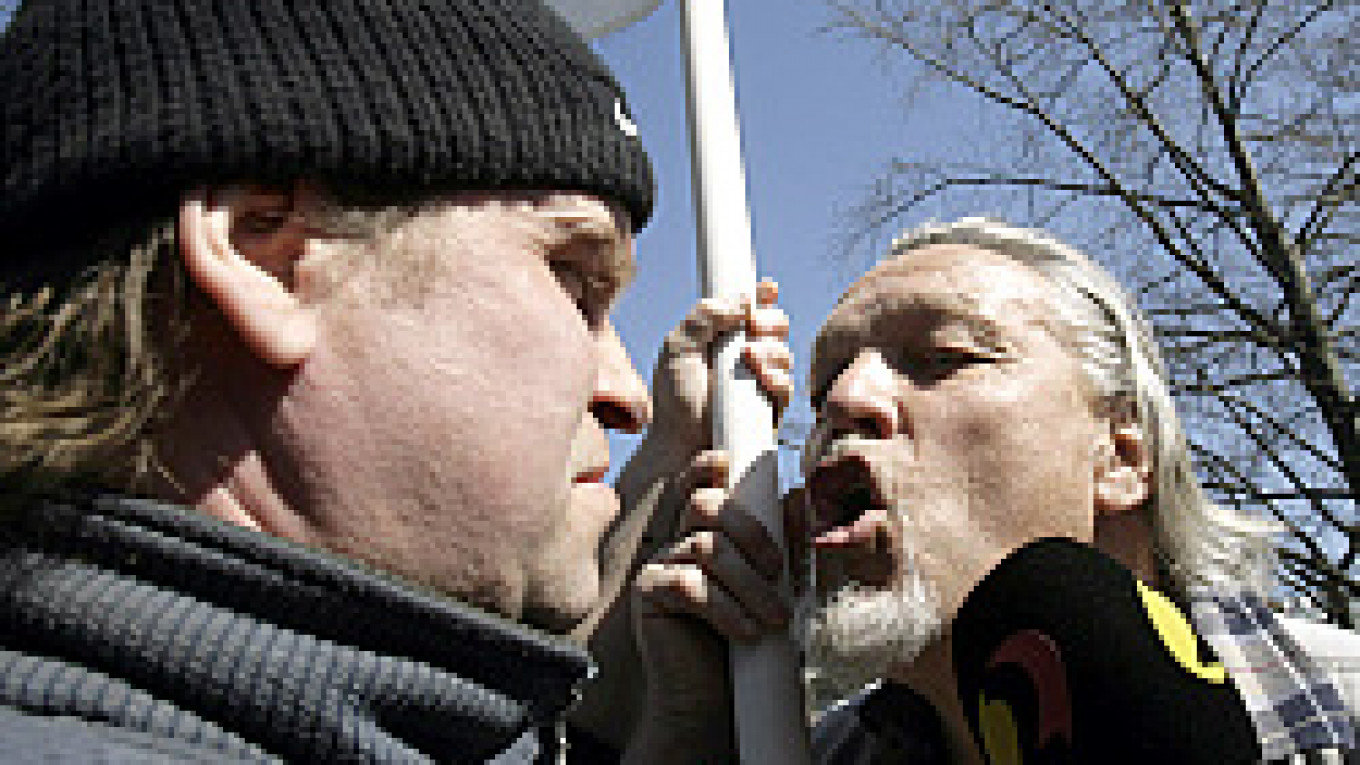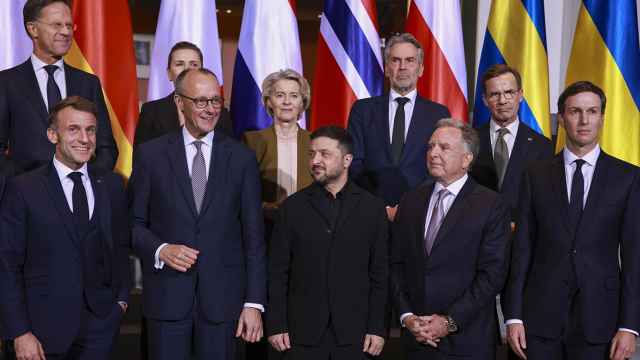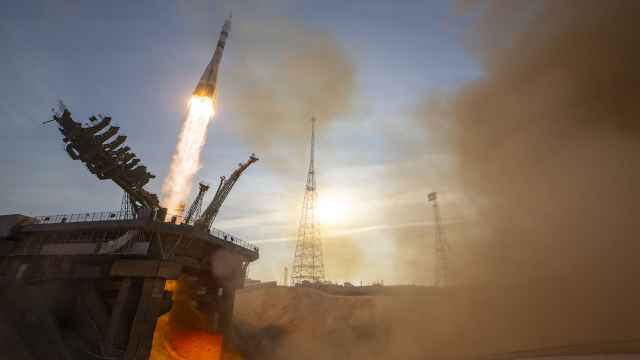A decision by the government to remove a pro-Soviet war memorial — dubbed the Bronze Soldier — and a nearby war grave sparked two nights of unrest in April 2007 that left one dead, more than 100 injured and many shops looted and burned.
On Saturday, protesters — mainly ethnic Russians — met in a park holding banners calling on people to turn their backs on the government and demanding that Prime Minister Andrus Ansip resign. The event was peaceful.
Moscow harshly criticized the decision to move the Bronze Soldier, calling it a sacred symbol of the defeat of Nazi Germany. But to many Estonians the monument was a caustic reminder of five decades of Soviet occupation.
The statue was relocated to a military cemetery some three kilometers from the downtown square where it had stood for over half a century.
Relations between Estonia and Russia deteriorated after the incident, with Moscow making efforts to isolate the Baltic state and punish it economically. A recent Estonian government study said the country lost 450 million euros ($700 million), nearly 3 percent of GDP, in business with Russia after the dispute.
A Message from The Moscow Times:
Dear readers,
We are facing unprecedented challenges. Russia's Prosecutor General's Office has designated The Moscow Times as an "undesirable" organization, criminalizing our work and putting our staff at risk of prosecution. This follows our earlier unjust labeling as a "foreign agent."
These actions are direct attempts to silence independent journalism in Russia. The authorities claim our work "discredits the decisions of the Russian leadership." We see things differently: we strive to provide accurate, unbiased reporting on Russia.
We, the journalists of The Moscow Times, refuse to be silenced. But to continue our work, we need your help.
Your support, no matter how small, makes a world of difference. If you can, please support us monthly starting from just $2. It's quick to set up, and every contribution makes a significant impact.
By supporting The Moscow Times, you're defending open, independent journalism in the face of repression. Thank you for standing with us.
Remind me later.






